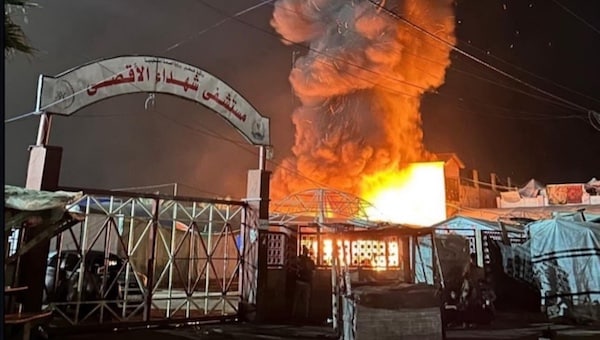Israel’s deliberate destruction of Gaza’s healthcare system, particularly targeting facilities serving women and children, has been labeled as “crime against humanity of extermination” by a UN inquiry. This finding aligns with warnings issued by Palestinians and humanitarian organizations over the past year. They have repeatedly stated that Israel’s systematic attacks on hospitals, primary health centers, and ambulances are aimed at obliterating the Palestinian people.
The UN report came just a week ahead of the anniversary of Israel’s deadly attack on Al-Ahli Hospital on October 17, 2023, where approximately 500 people were killed. Despite widespread outrage, little has changed in Israel’s strategy since then. Israeli authorities attempted to blame Palestinian resistance groups for the massacre—claims that were debunked. Even now, Israeli officials continue to insist that hospitals in Gaza are being used by Hamas for military purposes, but the UN report shows that no credible evidence has been provided to back this up.
In fact, the report highlights that while Israel claimed 85% of Gaza’s hospitals were used by Hamas at some point, it was actually Israeli soldiers who occupied health facilities for their own operations. One such example is the Turkish Hospital, which Israeli forces took over after making it non-operational. Once Gaza’s only dedicated cancer treatment center, providing care to 10,000 patients, it had been used as a base by Israeli troops. The shutdown of this hospital left cancer patients without access to essential treatment, leading to many deaths.
Meanwhile, three hospitals in northern Gaza—Kamal Adwan, Al-Awda, and the Indonesian Hospital—remain under constant attack and are running critically low on supplies. Despite Israeli orders for forced evacuations, these hospitals are still providing care and receiving patients daily. “Kamal Adwan is not evacuated, it is functional. Al-Awda is functional. We need to support and protect those hospitals,” said Dr. Rik Peeperkorn of the World Health Organization (WHO) during a press conference. Videos from Gaza confirm that, even under relentless bombardment, dozens of people continue to reach Kamal Adwan and Al-Awda seeking help.
WHO officials have repeatedly demanded that Israel halt its attacks on Gaza’s healthcare system, but the situation only continues to worsen. “A failure to protect healthcare devastates twice,” explained WHO legal officer Steven Solomon.
First in the immediate harm it causes, and then in the years it takes to rebuild health systems.
Rebuilding Gaza’s shattered healthcare infrastructure will surely take decades. On top of the physical destruction, health workers are battling the spread of infectious diseases, exacerbated by the destruction of water and sanitation systems. Just days ago, on October 14, the WHO and its partners launched the second phase of a polio vaccination campaign, aiming to reach around 600,000 children.
While the launch of the campaign in central Gaza has been successful, the situation in northern Gaza remains concerning. It’s important for health and humanitarian workers involved in the implementation not to be lulled into a false sense of security by the positive uptake of the polio efforts, Peeperkorn stressed. “There’s much more that needs to be done,” he added, including by securing safe delivery of aid.
The lack of food, medicine, and essential supplies in northern Gaza has long reached critical levels, with many families running out of ways to survive. No food has entered northern Gaza since the beginning of October, the World Food Program stated on October 12. “People have run out of ways to cope, food systems have collapsed, and the risk of famine is real,” they added.
Cholera returns to Lebanon
As Israel expanded its military campaign into Lebanon, a similar pattern of destruction emerged there. In just the past month, the WHO recorded at least 23 attacks on healthcare facilities and ambulances in Lebanon. Half of the primary health centers and dispensaries in conflict-affected areas have been forced to close due to the damage, the UN health agency warned. Out of 207 such facilities, 100 are no longer functioning.
Israel’s bombardment has also triggered a resurgence of cholera in Lebanon. This infectious disease had been brought under control after an outbreak in 2022, which killed dozens of people. However, due to the Israeli attacks, preventive measures stopped, and cholera cases have been confirmed again.
In the case of the 2022 outbreak, health experts stated that it was a matter of luck that the disease had been put under control quickly; if the outbreak had been more intense, the Lebanese healthcare system, weakened by a prolonged economic crisis and privatization, would have crumbled already then. In current conditions, a cholera outbreak could easily spiral out of control and make that scenario reality.
People’s Health Dispatch is a fortnightly bulletin published by the People’s Health Movement and Peoples Dispatch.

